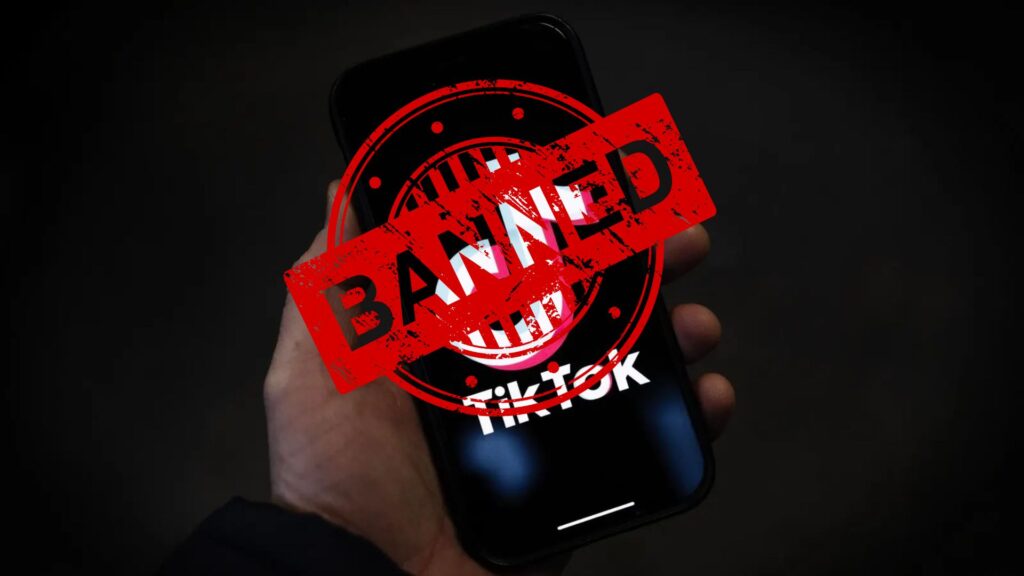
The future of TikTok, a platform with over 170 million users in the U.S., primarily from the younger generation, hangs in the balance due to growing national security concerns. A recent federal ban has reignited debates about the app’s ownership, data practices, and geopolitical implications.
Background
On January 20, 2025, shortly after being sworn in as the 47th President of the United States, Donald Trump signed an executive order granting TikTok a 75-day reprieve. The app had gone offline for U.S. users a day earlier after a prolonged legal and political battle resulted in a federal ban upheld by the U.S. Supreme Court.
The ban required Google, Apple, and web-hosting platforms to sever ties with TikTok, threatening fines of up to $5,000 per user if the app remained accessible. TikTok is now appealing to the U.S. Supreme Court to overturn the decision.
Why Was TikTok Banned?
The ban was enacted under the ‘Protecting Americans from Foreign Adversary Controlled Applications Act’, signed by former President Joe Biden in April 2024. The law aims to prevent apps controlled by foreign adversaries—particularly those from China—from operating in the U.S. due to potential risks like espionage and unauthorized data collection.
Key concerns include:
- Data Collection Risks: TikTok collects vast amounts of user data, including location, browsing history, and search activities. U.S. officials fear this data could be accessed by the Chinese government through ByteDance, TikTok’s parent company.
- National Security Threats: Authorities worry that TikTok could be used for surveillance, tracking federal employees, or even influencing public opinion through targeted misinformation.
Provisions of the Act
The law allows the U.S. Department of Justice (DoJ) to investigate and penalize platforms violating its provisions. However, exceptions exist:
- Apps may avoid the ban through “qualified divestiture,” meaning they can be sold to a non-adversarial entity.
- Apps primarily used for product reviews, travel information, or business purposes are exempt.
Penalties are user-based, with TikTok’s massive U.S. user base amplifying potential fines. Users are entitled to request and retrieve their account data before the ban takes effect.
Donald Trump’s Executive Order
President Trump’s executive order delays the enforcement of the TikTok ban by 75 days to allow a comprehensive assessment of national security concerns. During this period:
- The DoJ is barred from imposing penalties.
- Negotiations with ByteDance to restructure TikTok or reduce foreign control are possible.
This order reflects a balancing act between safeguarding national security and addressing the app’s immense popularity among younger Americans.
Legal and Political Implications
- Presidential Authority: While the President has broad authority over national security, critics argue Trump’s delay could undermine Congressional intent. The 75-day period raises questions about whether the administration seeks a permanent solution or a political reprieve.
- Supreme Court’s Role: Any legal challenge to Trump’s order could lead to landmark decisions on the separation of powers, testing the limits of executive authority in national security matters.
Historical Context
TikTok’s contentious journey in the U.S. predates the current developments:
- Trump’s First Term: In 2020, President Trump attempted to force ByteDance to sell TikTok to a U.S. entity, citing national security risks. Federal judges blocked the move, ruling that Trump exceeded his authority under emergency economic powers.
- Biden Administration: In 2021, President Joe Biden revoked Trump’s TikTok ban but introduced stricter data security measures for foreign-owned apps.
Despite these measures, the platform has continued to face scrutiny, oscillating between being banned and allowed—a reflection of the geopolitical tensions between the U.S. and China.
Broader Implications
- Geopolitical Tensions: The TikTok ban highlights the growing distrust between the U.S. and China over technology and data security. The issue extends beyond TikTok, with several Chinese-owned tech companies facing similar restrictions.
- Economic Impact: TikTok employs thousands in the U.S. and contributes significantly to the economy through advertising and content creation. A ban could disrupt businesses and content creators reliant on the platform.
- Global Precedent: If the U.S. successfully enforces a ban, other countries may follow suit, reshaping the global digital ecosystem.
Conclusion
TikTok’s uncertain future reflects the complex intersection of technology, national security, and geopolitics. While the U.S. government seeks to address legitimate security concerns, it must also navigate public opinion, legal challenges, and economic interests.
The resolution of this issue will likely have far-reaching implications—not just for TikTok, but for the broader debate on digital sovereignty and the role of technology in modern geopolitics.
Also Read: Tragic Train Incident Near Jalgaon Claims 11 Lives
Disclaimer
This article is for educational purposes, focusing on the relevance of the topic for UPSC aspirants. Students should stay updated on further developments and refer to official sources for comprehensive preparation.
Follow Fusion IAS


